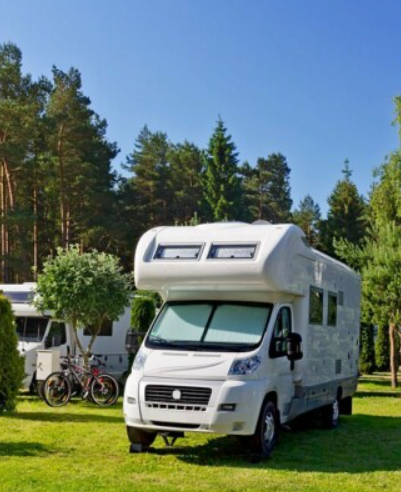Starting an RV park or campground can be a great business venture, especially if you have a large piece of land available. As more people embrace the RV lifestyle for travel and affordability, there’s an increasing demand for campgrounds and RV parks. Whether you’re looking to offer recreational spaces for vacationing families or create a budget-friendly housing alternative, here’s a practical guide to help you get started.
Partnering with a Franchise
One of the simplest ways to launch an RV park or campground is by investing in a franchise. The Kampgrounds of America (KOA) franchise program is one of the most well-known in the industry, providing comprehensive support to help you succeed. KOA is the largest network of campgrounds in the U.S., and studies suggest that franchisees see an increase in revenue, with a 19% boost in registration revenue in their first year.
Franchising allows you to benefit from an established brand, marketing support, and a proven business model. You’ll receive guidance on everything from operations to staffing, making it easier for newcomers to the industry to navigate the business.
Benefits of Franchising
The primary advantage of franchising is access to a recognized brand. Marketing efforts and brand-building can be costly, and starting from scratch can be challenging. Franchising eliminates this issue and provides you with the reputation of a well-established brand.
Additionally, franchisors offer valuable training, financial tools, operational processes, and ongoing support. They’ll also provide insight into vendor relationships and performance expectations, helping you hit the ground running. However, you must understand that when you invest in a franchise, you don’t fully own the business. Instead, it’s more akin to renting a business model for a set period (usually 5 to 30 years).
Disadvantages of Franchising
While franchising offers plenty of support, there are drawbacks. The initial franchise fees and ongoing royalty payments can be expensive, and you’ll need to follow the franchisor’s rules. There may be restrictions on the number of locations available in your area, and you may find the operational guidelines too rigid for your tastes. If you prefer more autonomy in how you run your business, this may feel limiting. However, franchising can be a stepping stone before deciding to branch out independently.
Costs of Starting an RV Park
Starting an RV park can be a significant investment. Franchisees typically need around $500,000 in liquid assets and an initial franchise fee of $40,000. Additionally, you’ll pay annual fees and royalties based on your revenue.
If you choose to go the independent route, costs can vary. You’ll need to factor in local permits and licensing fees, the cost of land, and any improvements you make to the site. A solid business plan and understanding of your budget are essential before moving forward.
Location Matters
The location of your RV park or campground can make or break your business. Proximity to national parks, forests, lakes, or other outdoor attractions is ideal. However, even in urban areas, you may find opportunities to cater to the growing demand for RV living as an affordable alternative to high rent or crowded housing.
For example, you could establish an RV park near scenic locations, offering both recreational opportunities and a unique living arrangement. Be sure to check local regulations, as some areas have specific rules regarding the minimum land size required for such ventures.
Planning Amenities
One of the key decisions you’ll face is what kind of amenities to offer. You can create a basic campground or go for a more luxurious “glamping” experience. Many regions have certain mandatory amenities like a septic system, so make sure you understand the local requirements for compliance.
Some considerations include:
- Will you offer RVs for rent or allow guests to bring their own?
- Will you provide electrical hookups, and if so, will you offer 30-amp or 50-amp service?
- What extra amenities can you include to attract more customers? Swimming pools, dog parks, children’s play areas, and recreation centers can increase your appeal.
- On-site Wi-Fi: Consider whether to offer internet access, which is important for some RV travelers who work remotely.
The more amenities you offer, the higher the fees you can charge, but it’s essential to balance the costs of upgrades with the potential increase in revenue.
Marketing Your Campground
If you partner with a franchise, marketing support is often included, providing a proven plan to promote your campground. However, if you go independent, you’ll need to create your own marketing strategy. Here are a few ideas:
- Build and optimize a website to showcase your campground.
- Utilize social media platforms to spread the word.
- Start an email marketing campaign to engage potential customers.
- Encourage satisfied guests to leave reviews and share their experiences.
- Collaborate with other local businesses or attend industry events to increase your visibility.
Effective marketing is crucial in attracting guests, whether you’re part of a franchise or operating independently.
Conclusion
Starting an RV park or campground can be an excellent opportunity to tap into the growing outdoor travel market. Whether you choose to partner with a franchise like KOA or go the independent route, the key to success lies in choosing the right location, providing appealing amenities, and creating a solid business plan. With proper planning and execution, you can create a thriving business that caters to both local visitors and traveling adventurers.



